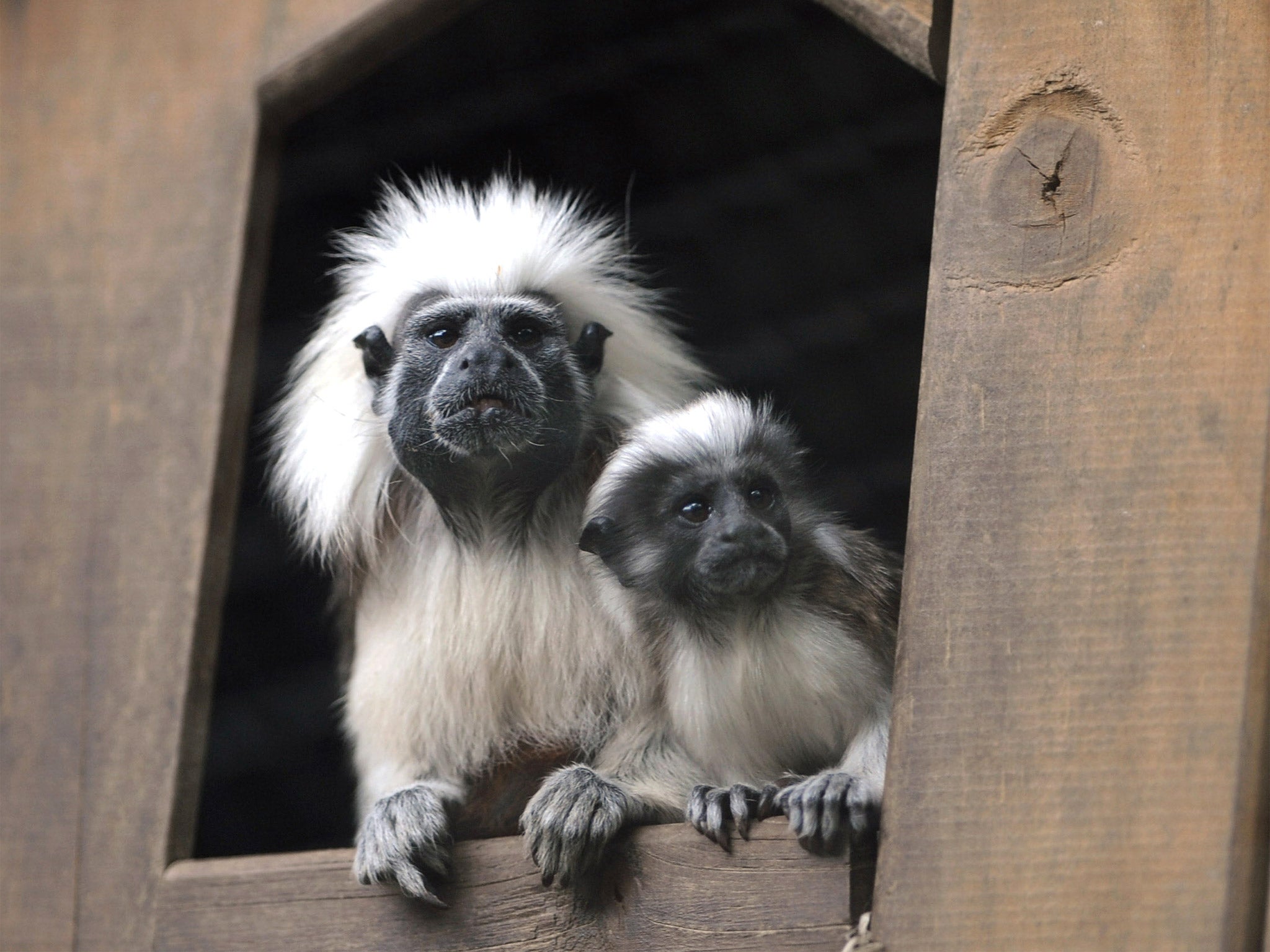Monkey business: Rising interest in exotic pets sees primate ownership in England and Wales soar to over 9,000

The number of monkeys and other primates being kept as pets has soared to an estimated 9,000 animals in England and Wales as rising interest in exotic creatures fuels demand while the internet makes them easier to trade, according to the RSPCA.
In a sign of how fast pet primate ownership is rising, the RSPCA's senior scientist Dr Ros Clubb said the number of complaints her charity received on the matter soared by 73 per cent last year, as concerned residents spotted increasing numbers of monkeys being kept in cages in their neighbourhoods. Marmosets, squirrel monkeys, tamarins and woolly lemurs are among the most popular pet primates.
“My general impression is that there is an increased availability on the Internet, through social media sites and classified ads, and this is a major concern. An increasing number of people are keeping primates as pets,” Dr Clubb told a parliamentary committee yesterday, adding that some were being imported but most were being bred in the UK.
“There is an increased interest in exotic pets more generally and there have been several high profile cases involving primates recently,” she added.
Justin Bieber’s pet capuchin monkey, Mally, hit the headlines last summer when he was confiscated by customers officers in Munich because he lacked a travel health certificate. Mally was sent to a zoo in north Germany after animal welfare experts said he had been taken from his mother too young and should be kept in a group of the same species.
Dr Clubb and Rachel Hevesi, director of the Wild Futures primate charity, yesterday called for an outright ban on keeping primates as pets.
Ms Hevesi said: “It is very different from cats or dogs… It is well known that primates find it very difficult to adapt to life in captivity.”
Dr Clubb added: “The only way to get round the problem is to stop it happening in the first place, to turn off the tap. We need a prohibition on keeping them.”
Since the Dangerous Wild Animals Act of 1976 was relaxed in 2007 it is no longer necessary to apply for a licence to own certain primates, including squirrel monkeys and tamarins. Other primates, including old-world monkeys such as baboons and mandrills, and leaping lemurs, still require a licence – although animal welfare groups suspect that many people keep animals illegally, without a licence.
Those calling for a ban argue that the existing code of practice covering most primate ownership in England (but not Wales) is far too general and lacks teeth. Furthermore, they say that while the dangerous animal licences are far more effective, too many people do not have them. As a result, they say the only solution is a ban.
But Dr Lisa, a primatologist and independent animal welfare consultant, warned that such a ban risked driving ownership “underground” arguing that there was a place for specialist primate keepers operating under licences.
Lord De Mauley, the parliamentary undersecretary for the Department for Environment, Food and Rural Affairs, added: “There seems to be a misconception in the public that it is acceptable to keep a primate in a cage, on its own, with an inappropriate diet. That is already against the law.”
He said he was not convinced a ban would be “proportionate”, adding that it would not be easy to enforce and warning that it could lead to “unintended consequences” – for example by driving more trade through overseas websites which are harder to govern.
The British Veterinary Association is among the other bodies in favour of a campaign. Robin Hargreaves, its president, said this month that primates were “intelligent, socially complex animals and we can think of no circumstances where they would benefit from being kept as a pet.”
Prime apes: The most popular primates
- Marmosets – by far the most popular primate, accounting for 80 per cent of for sale adverts, according to the RSPCA.
- Tamarins – a distant, but still popular, second place – accounting for 14 per cent of ads.
- Capuchin – this species may be a less popular pet primate than some of the others but is arguably the most famous after Justin Bieber’s pet Capuchin was confiscated by customs officials I Munich last summer.
Subscribe to Independent Premium to bookmark this article
Want to bookmark your favourite articles and stories to read or reference later? Start your Independent Premium subscription today.

Join our commenting forum
Join thought-provoking conversations, follow other Independent readers and see their replies